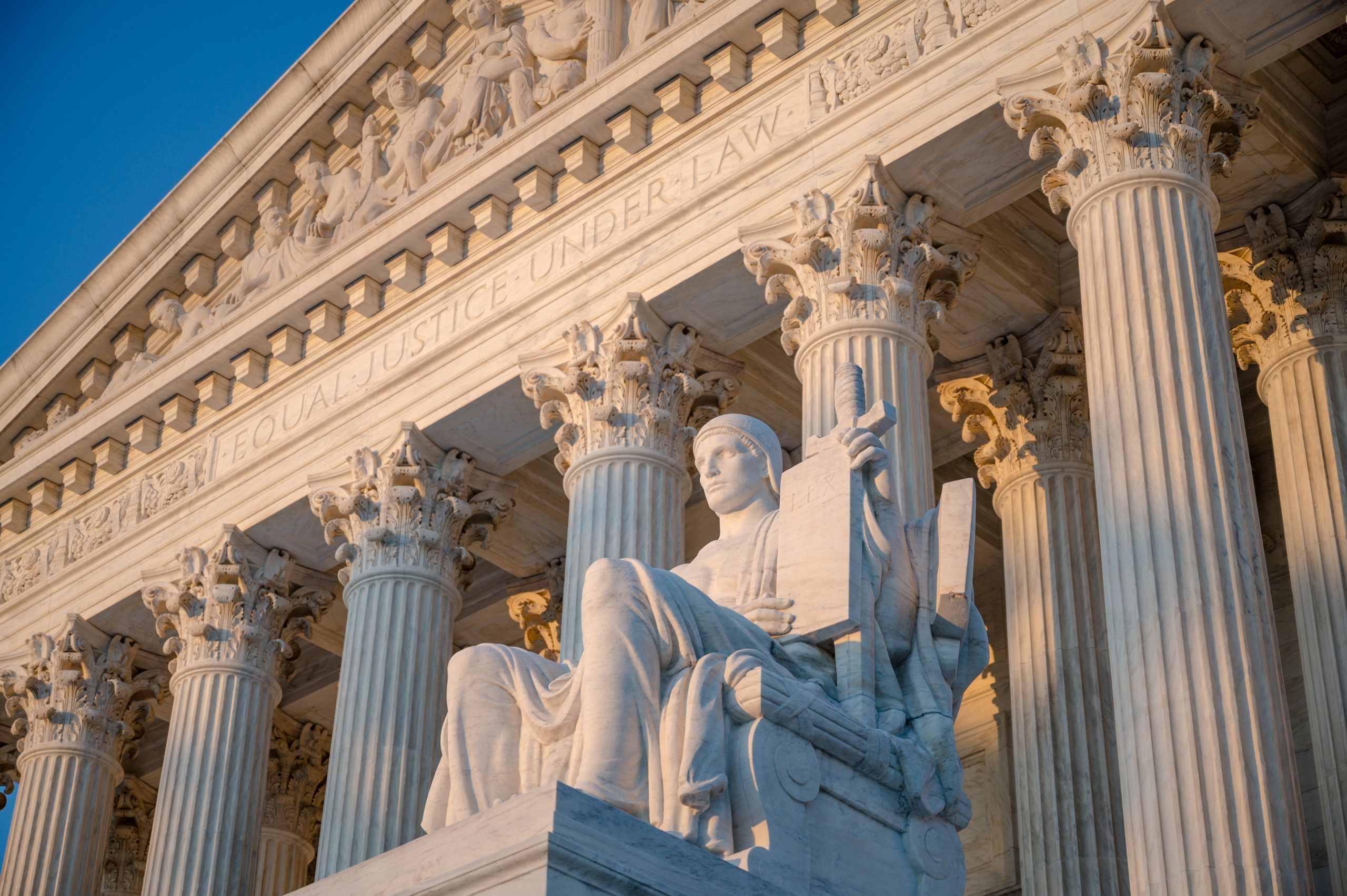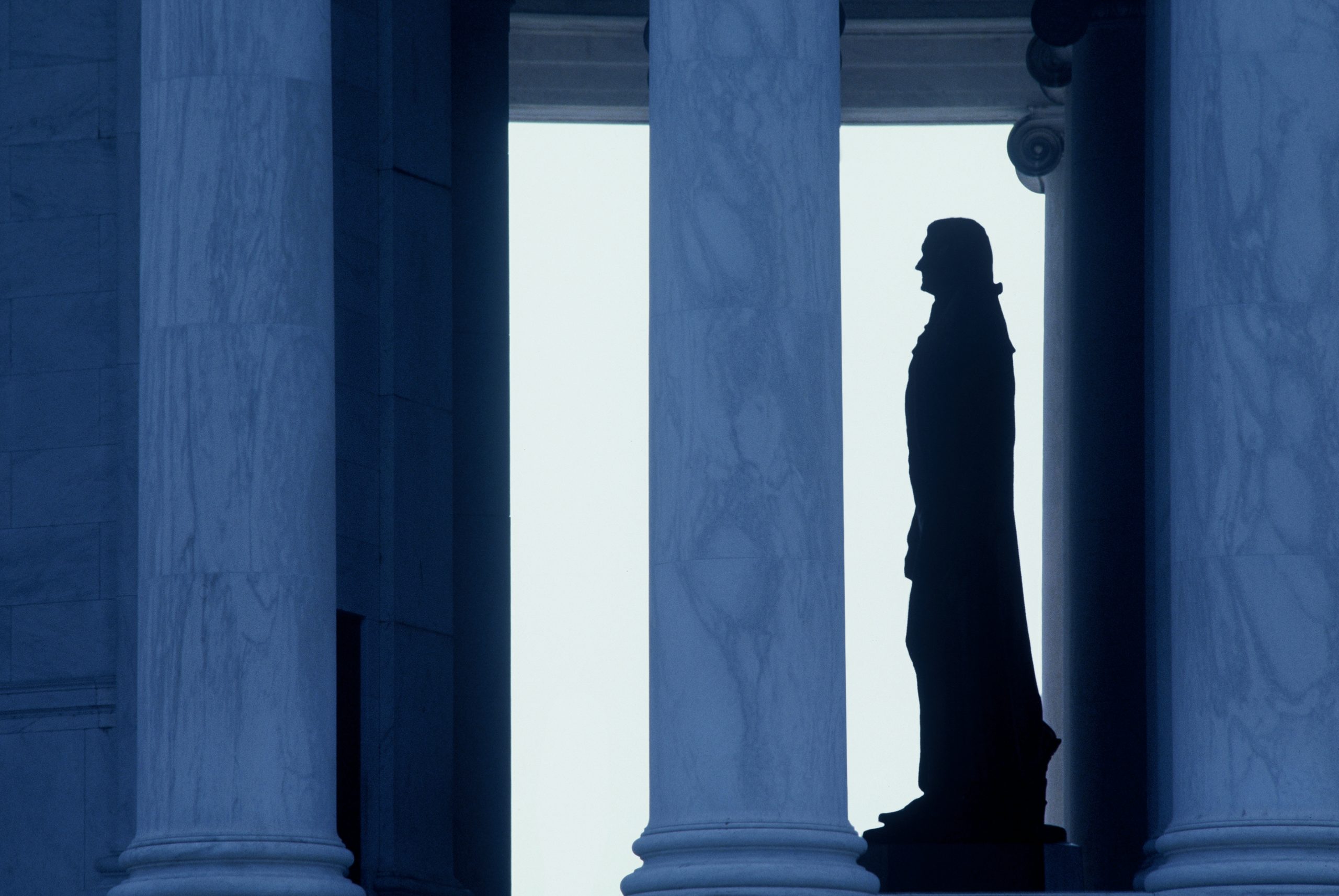Harry V. Jaffa rejected both the living constitution of the Progressives and the moral relativism of some conservatives.
Retrieving Natural Right

Harry V. Jaffa helped save American history from Progressive historicism.
This feature marks the publication of Claremont Institute Senior Fellow Glenn Ellmers’s new book on Jaffa’s life and thought, available for purchase here.
When Leo Strauss wrote in the 20th century, he was well aware of the need to restore the foundation of natural right. But he noted that “the seriousness of the need of natural right does not prove that the need can be satisfied.” Strauss pointed to the reason for the difficulty in attempting to satisfy that need: “the problem of natural right is today a matter of recollection rather than of actual knowledge.” Consequently, he insisted that “we are therefore in need of historical studies in order to familiarize ourselves with the whole complexity of the issue.”
However strange it must seem, given the abundance of historical scholarship, Strauss demanded that we must, once again, become students of “the history of ideas.” The intellectual triumph of historicism had precluded the kind of openness to natural right necessary for its recovery. Consequently, the problem of natural right was merely a memory or recollection. In short, there was no meaningful knowledge of natural right. In the case of Lincoln, the scholarship of the historians and social scientists had made it nearly impossible to comprehend the doctrine of natural right, or the theoretical perspective that had animated Lincoln’s self-understanding.
However, since Strauss, historical scholarship has begun to reveal the contours of a natural right teaching. Many of Strauss’s students have produced the kind of nonhistoricist historical studies that have shed light on this question. In terms of Lincoln scholarship, Harry V. Jaffa provided an analysis of the Civil War in direct opposition to that of the Progressive historians after the Civil War.
Jaffa made the theoretical foundations of Lincoln’s thought and political prudence intelligible for the first time in more than a century. He enlightened a generation of scholars on the problem of natural right by revealing the limitation imposed on Progressive scholarship by historicism itself. Today, many other scholars are producing historical studies of a kind that open up the possibility of understanding the past as it understood itself—scholarship done in a nonhistoricist manner and open to the problem of natural right.
I learned a great deal from Leo Strauss and Harry Jaffa. Glenn Ellmers’s The Soul of Politics has done much to refresh my memory of what I had learned and what I had forgotten. The book’s clarity in elucidating the intellectual and theoretical ground of Jaffa’s thought, his debt to Leo Strauss, and his ability to reveal the prudential, practical, and political character of Lincoln’s statesmanship in light of that intellectual tradition, goes a long way toward making Jaffa’s thought accessible to a new generation of young people who cannot but be concerned with political reality.
The American Mind presents a range of perspectives. Views are writers’ own and do not necessarily represent those of The Claremont Institute.
The American Mind is a publication of the Claremont Institute, a non-profit 501(c)(3) organization, dedicated to restoring the principles of the American Founding to their rightful, preeminent authority in our national life. Interested in supporting our work? Gifts to the Claremont Institute are tax-deductible.
At the crossroads of reason and revelation stands the American idea.
Harry V. Jaffa's work and teaching was not enslaved to the fashions of his day.
Reflections on Harry V. Jaffa from a grateful student.
Rescuing America is the great task of this generation's best.
Glenn Ellmers's new book on Harry V. Jaffa teaches urgent lessons for our fractious politics.






